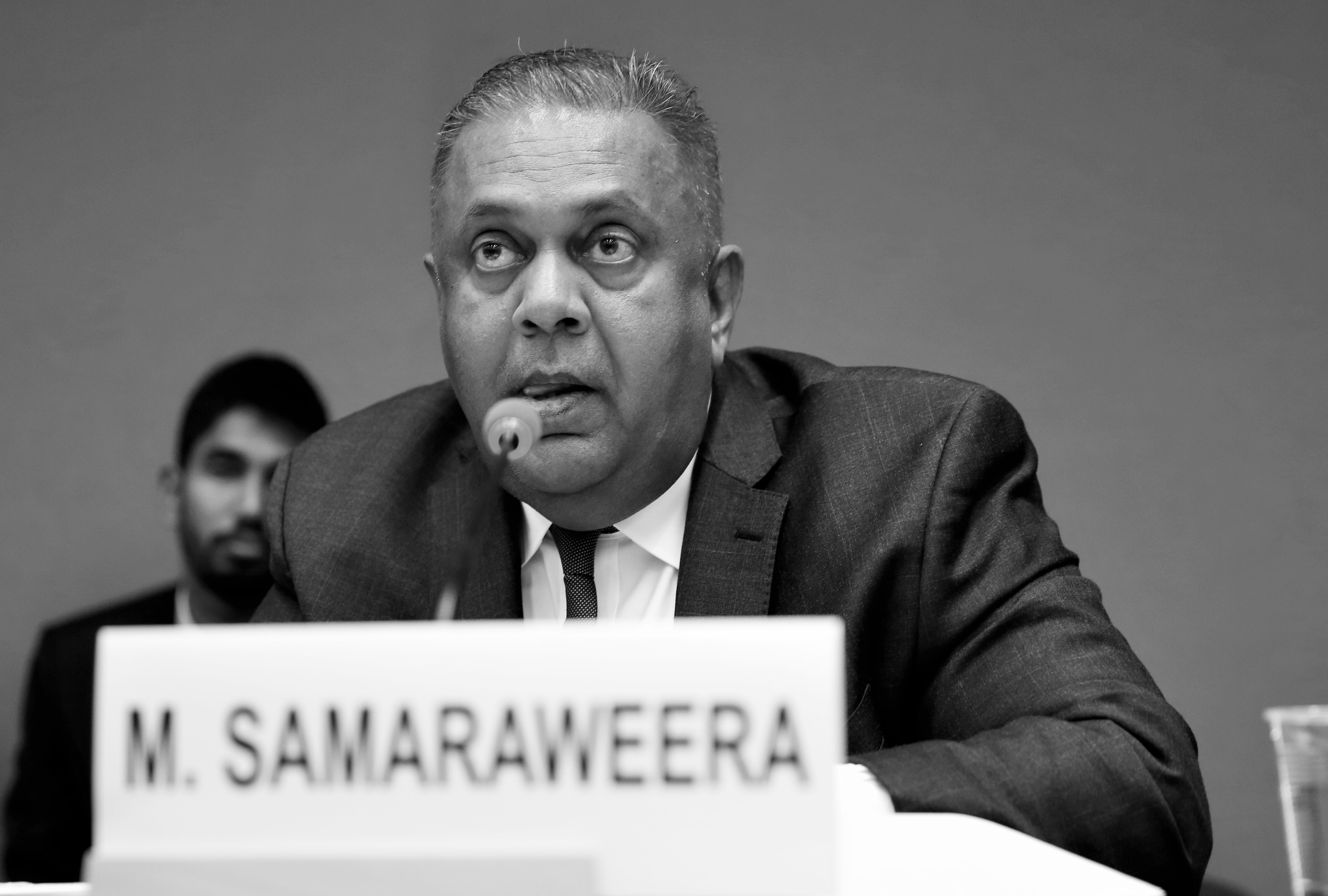Pledges contains in the HRC resolution are not made to the UNHRC. They are pledges made to the people of the country at the last presidential election. Item No.93 of the 100 day program clearly states, ‘we will not agree to an international inquiry but in order to look into various allegations, including war crimes, we would set up our own domestic mechanism’. That was our pledge to the people.
It is with that intention that I went to Geneva, just one month after the election of President Maithripala Sirisena in January 2015. I requested them to stop the international inquiry which they had already begun with the blessings of the member states.
Thanks to the election victory and the newly earned trust we managed to alter that course and come up with our own road map for reconciliation and transitional justice.
It was a four tier road map. The first year talks about the truth seeking mechanism, then, the accountability mechanism, the reparation mechanism and mechanisms to ensure non- recurrence.
Already, Rs. 1.3 billion has been allocated from the last budget to operationalize the Office of Missing Persons (OMP). We will work out the modalities of the truth seeking mechanism and the reparations unit in the next few months and also the mechanisms for non-recurrence, for a wider reconciliation.
It is important the OMP is given life to look into the cases of missing persons, it can investigate into persons who went missing during the JVP insurrection as well.
We must also remember the OMP does not have any powers to prosecute. It will simply be an office to look into complaints of missing persons and decide if they are really missing, dead, travelled overseas or just living out of sight. This needs to be done for the sake of the mothers and wives who are still waiting for their loved ones to return.
The next stage is the truth seeking mechanism. We have still not worked out the final contours of this mechanism, but certain committees are working on it. We have a steering committee headed by Prof. Savithri Gunasekera looking at various possibilities of setting it up. We are also sharing experiences with countries like South Africa, which has vast experience in this area.
But, our mechanism will not be an exact replica of the Truth Commission in South Africa. We want it to be uniquely Sri Lankan. In the next few months we would be able to finalize the actual architecture of this mechanism.
There is a obsession about foreign judges because, during the last ten years, the Judiciary virtually became servile to the whims and fancies of the Executive.
During the past 18 months, we have begun the process to restore a credible independent judiciary. The call for foreign judges implies that we have to come up with a credible independent mechanism that can win the trust of all stakeholders. I believe we can do so.
In many other transitional justice mechanisms the courts were appointed by the UN Secretary General, but here, this whole process is in our hands. It is only fair for them to make requests on areas they think that we are weak.
However, for this process to succeed a final solution must be evolved through the engagement of all stakeholders. That includes the moderate Tamil voice, even within the TNA. We must remember that it was the moderate Tamils, Muslims and Sinhalese who elected the Government. We don’t want to see yet another generation being pushed into the hands of extremists.
We are not going to touch the judicial mechanism straightaway. The constitutional process is equally important. The devolution proposals are important. They must be given priority this year. If our truth seeking mechanism and Missing Persons office gain confidence of all concerned, the demand by the people, for such a judicial mechanism may also drift away.
We have our own transitional justice road map. We want to fulfil our commitments to the people.Only by winning the trust and confidence of the Tamil people, especially, in the North and East, can we ensure that the tragedies that may have happened in the past will never happen again.
Edited version from an interview published in Sunday Observer
